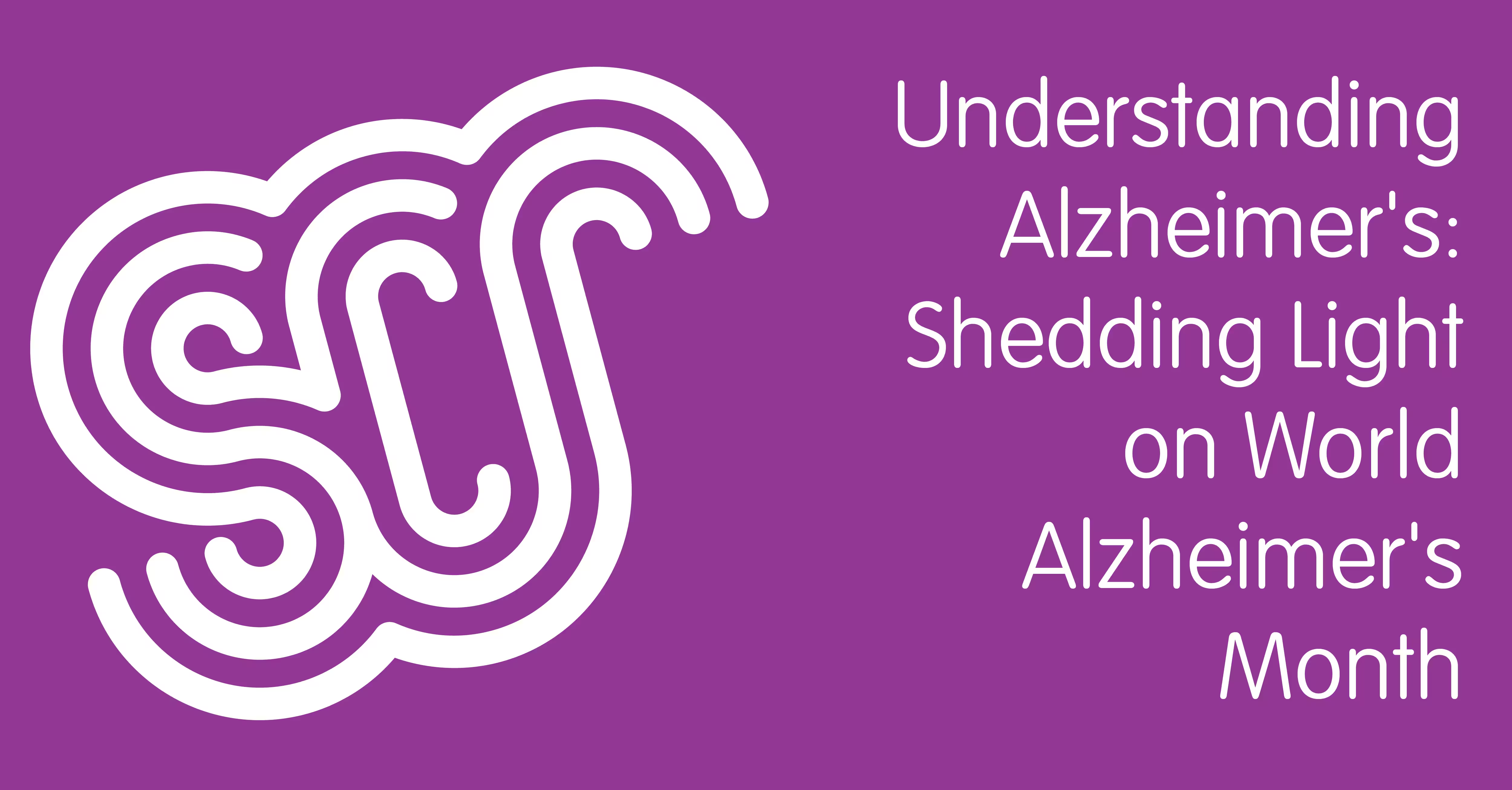
Understanding Alzheimer’s: Shedding Light on World Alzheimer’s Month
Understanding Alzheimer’s: Shedding Light on World Alzheimer’s Month
September marks World Alzheimer’s Month, a time for raising awareness and understanding about this devastating disease. Alzheimer’s is a progressive brain disorder that affects millions of people worldwide, causing memory loss, cognitive decline, and behavioural changes. In this article, we will shed light on the significance of World Alzheimer’s Month and why it matters for individuals, families, and communities.
Throughout the month, various organisations and advocates come together to educate the public, promote healthy aging, and support those affected by Alzheimer’s. By joining forces, we can foster a sense of community, empower caregivers, and encourage early detection and intervention.
Understanding the impact of Alzheimer’s is essential, as it not only affects the individuals living with the disease but also their loved ones who provide care and support. This article will delve into the challenges faced by caregivers and explore strategies to improve quality of life for individuals with Alzheimer’s.
Join us as we shine a light on Alzheimer’s and contribute to the global conversation during World Alzheimer’s Month. Together, we can make a difference in the lives of those touched by this heartbreaking disease.
What is Alzheimer’s disease?
Alzheimer’s disease is a progressive neurological disorder that primarily affects the brain, leading to a gradual decline in cognitive functions, memory, and overall mental capabilities. It is the most common form of dementia, accounting for 60-80% of all dementia cases worldwide.
The exact cause of Alzheimer’s disease is not fully understood, but it is believed to be a complex interplay of genetic, environmental, and lifestyle factors. The disease is characterised by the accumulation of two key proteins in the brain: amyloid-beta and tau. These proteins form plaques and tangles, respectively, which disrupt the normal functioning of brain cells and ultimately lead to their destruction.
As the disease progresses, individuals with Alzheimer’s experience a range of symptoms, including memory loss, difficulty with problem-solving, language problems, confusion, and changes in mood and behaviour. These symptoms worsen over time, eventually leading to the complete dependence of the individual on caregivers for daily activities. Alzheimer’s is a devastating condition that not only affects the person living with the disease but also has a profound impact on their family and loved ones.
The impact of Alzheimer’s disease on individuals and families
Alzheimer’s disease has a profound impact on both the individuals living with the condition and their families. As the disease progresses, it gradually robs the person of their cognitive abilities, independence, and overall quality of life.
For the individual with Alzheimer’s, the experience can be deeply distressing and isolating. They may struggle to perform everyday tasks, remember important information, and maintain social connections. The loss of memory and cognitive function can lead to feelings of confusion, frustration, and a sense of disconnection from their own identity.
The emotional toll on families and caregivers is also immense. Witnessing a loved one’s gradual decline can be heartbreaking, and the responsibility of providing care and support can be physically, mentally, and financially draining. Caregivers often face challenges in balancing their own needs with the demands of caring for someone with Alzheimer’s, which can lead to caregiver burnout, stress, and even health problems.
Support services for individuals with Alzheimer’s and their caregivers
Caring for an individual with Alzheimer’s disease can be a challenging and demanding task, both physically and emotionally. Caregivers, whether they are family members or professional care providers, play a vital role in supporting the well-being and quality of life of those living with the disease. However, the demands of caregiving can also take a toll on the caregiver’s own health and well-being.
To address the needs of both individuals with Alzheimer’s and their caregivers, a range of support services and resources are available. These include:
- Alzheimer’s support groups: These groups provide a safe and supportive environment for caregivers to share their experiences, receive emotional support, and learn coping strategies from others facing similar challenges.
- Respite care services: Respite care offers temporary relief for caregivers, allowing them to take a break from their caregiving responsibilities and recharge. This can include in-home care, adult day programs, or short-term residential care.
- Educational resources: Comprehensive information and educational materials on Alzheimer’s disease, its progression, and effective caregiving strategies can empower caregivers and help them navigate the challenges they face.
- Care coordination and case management: Professional care coordinators and case managers can help individuals with Alzheimer’s and their families access the appropriate medical, social, and community-based services to meet their needs.
- Financial and legal assistance: Navigating the financial and legal aspects of Alzheimer’s care can be complex. Support services can provide guidance on insurance coverage, estate planning, and other important considerations.
- Counseling and mental health services: The emotional toll of caregiving can be significant, and access to counseling, support groups, and mental health resources can be invaluable for caregivers.
By leveraging these support services, individuals with Alzheimer’s and their caregivers can improve their quality of life, maintain a sense of independence and dignity, and access the necessary resources to manage the challenges of the disease.
Spreading awareness and taking action during World Alzheimer’s Month
World Alzheimer’s Month presents a powerful opportunity for individuals, communities, and organizations to come together and take meaningful action to address the global impact of Alzheimer’s disease. During this time, there are numerous ways to get involved and contribute to the cause.
One of the most impactful ways to participate is by raising awareness and educating others about Alzheimer’s. This can be done through social media campaigns, community events, or by sharing personal stories and experiences. By breaking down the stigma and misconceptions surrounding the disease, we can foster a more compassionate and understanding society.
Advocacy is another crucial aspect of World Alzheimer’s Month. Individuals can contact their local and national policymakers to advocate for increased funding for Alzheimer’s research, improved access to care and support services, and the implementation of dementia-friendly policies. Participating in advocacy efforts can help ensure that the needs of those affected by Alzheimer’s remain a priority on the public agenda.
Fundraising initiatives, such as charity walks, donation drives, or online campaigns, can also make a significant difference during World Alzheimer’s Month. The funds raised can support vital research, provide resources for caregivers, and enhance the quality of life for individuals living with Alzheimer’s.
Additionally, individuals can volunteer their time and skills to support local Alzheimer’s organisations, whether it’s assisting with community programs, providing respite care, or participating in research studies. By getting involved at the community level, we can make a tangible difference in the lives of those affected by the disease.
